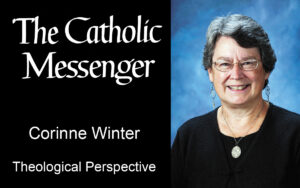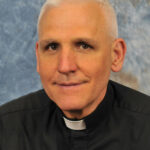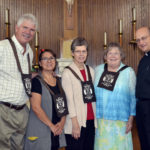By Corinne Winter
Christmas Day is here, or will be in a few days. What happens next? Children may find a few lovely days with more hours for play, days of not having to rise so early and be ready for school. Adults may experience a sense of accomplishment or relief at having made it through the rush and crush of Christmas preparation. Some people may feel a certain let-down. Rooms feel almost bare as Christmas trees with their ornaments and lights are taken down.
 Our liturgical and theological tradition calls us to see the celebration of Christmas day not as an ending but as a new beginning. With the birth of Jesus, God has entered the world in a new way. Now comes the time of seeking, recognizing and exploring the meaning of that Advent. The feasts and Gospel accounts, rather than offering us biographical data, it seems to me call us to pay attention to ways in which Christ is to be sought and found in our own lives.
Our liturgical and theological tradition calls us to see the celebration of Christmas day not as an ending but as a new beginning. With the birth of Jesus, God has entered the world in a new way. Now comes the time of seeking, recognizing and exploring the meaning of that Advent. The feasts and Gospel accounts, rather than offering us biographical data, it seems to me call us to pay attention to ways in which Christ is to be sought and found in our own lives.
We celebrate the feast of the Holy Family, the idea that Jesus grew up (“In wisdom, age, and grace,” the Gospel says) within an ordinary-looking family of his time and culture. We often romanticize the life of Jesus, Mary and Joseph; and surely there was the extraordinary presence of the Incarnate Son of God. And yet, since that son had become also fully human, the ordinary tasks of maintaining a household and caring for a child would have marked their days. How did all of that fit together? Was every act marked by an awareness of Jesus’ divinity? When I read the story about Jesus in the temple, I think of Mary and Joseph experiencing rather normal parental anxieties. Most theologians propose that even Jesus himself, having entered fully into everything it means to be human, would have gone through the experience of self-discovery. In our own lives, are we open to finding the presence of God in the everyday? Are we convinced that who we are is God’s gift and a call from God to be a gift to others? Do we give thanks for the ordinary relationships with family and friends as signs of the love of God?
We celebrate the Solemnity of Mary, Mother of God. The Marian title that marks the day was decreed to be truthful at a fifth-century council during debates over the divinity and humanity of Jesus. The conciliar decree affirms what we call the doctrine of the Incarnation: that the one whom Mary bore in her womb, the one who took humanity through her, was the Son of God. God came to earth, miraculously conceived but born in the normal way, through a woman, taking flesh from her. St. Athanasius is among the many theologians and church leaders who exhort us to view Mary’s role as a sign of our own calling to bear Christ to others. Do we believe that? Do we make it a personal mission? Or do we consider our bodies and other things of this world such as water, bread and wine, to be unworthy of God?
We celebrate Epiphany, which receives much more attention in some cultures than it does in the U.S. The story tells of three wise ones — usually portrayed as kings — coming “from afar.” Not of the Jewish faith, they have nonetheless in their search for wisdom and goodness come to look for one in whom truth is found. The story is certainly symbolic and our inclusion of the kings in our manger scenes confuses even the biblical account. But as gentiles coming to Christ, the Magi represent the fulfillment of the promise made by the angels that the good news of Jesus Christ is for all. Reflecting on their story, we might think of the diverse paths that lead people to faith. We might be reminded not to believe that our own story represents the way things must be for all people. We might be open to inspiration from unexpected sources.
The first week of “Ordinary Time” begins with the celebration of Jesus’ baptism, the beginning of his public ministry. Again we hear announcements about who Jesus is and an exhortation to listen to him. And that listening should be the source of our lives, lives given by God whose incarnation reveals and makes possible our ultimate destiny. May this Christmas season call us to deeper appreciation of the many ways in which God comes into our lives always.
(Corinne Winter is a professor-emeritus of St. Ambrose University, Davenport.)











